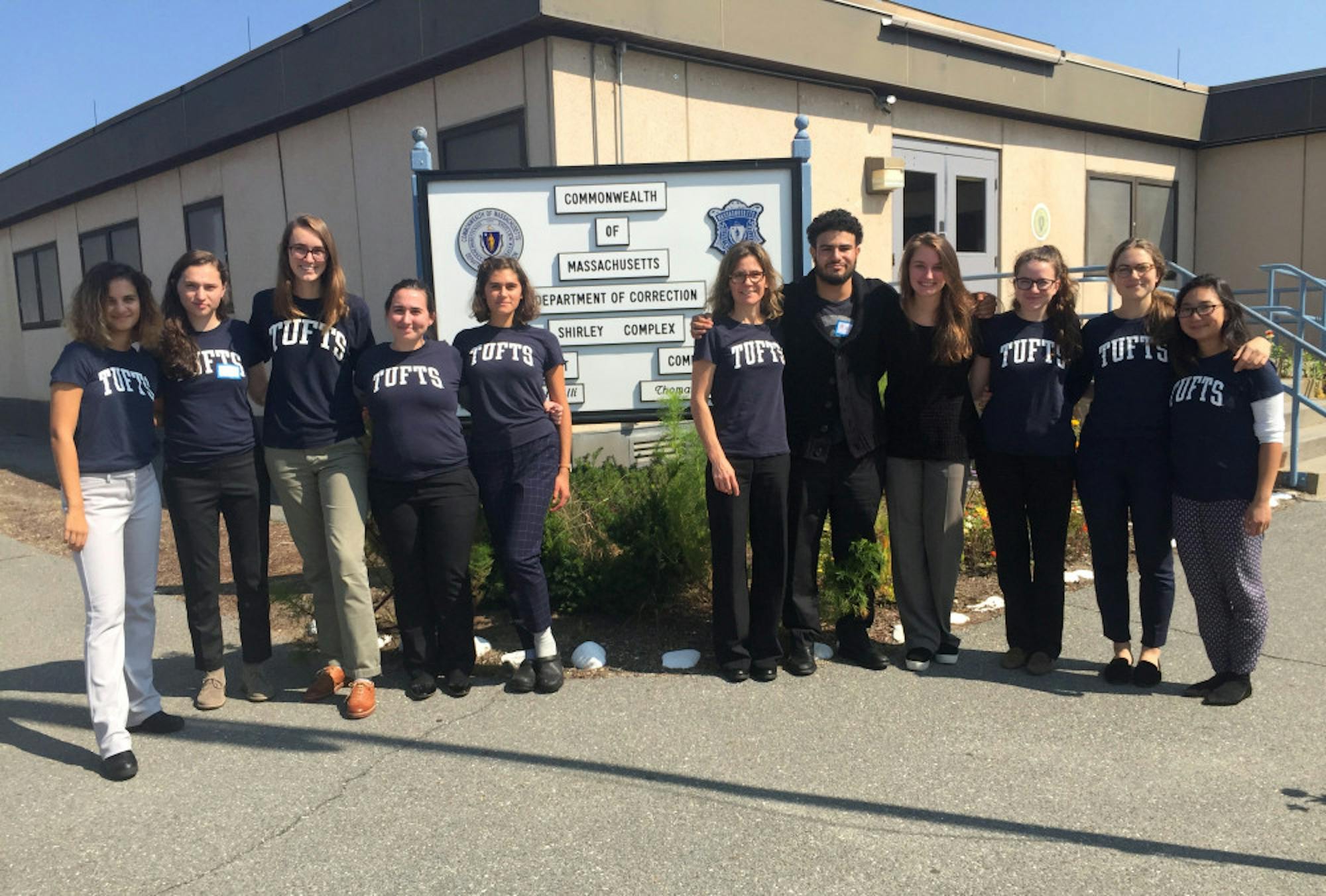The Tufts University Prison Initiative at Tisch College (TUPIT) introduced a resolution that was passed unanimously by the Tufts Community Union Senate in a March 22 virtual meeting. The resolution calls on the university to allow currently and formerly incarcerated individuals who are taking Tufts courses through the TUPIT program, which is taught by Tufts professors, to earn a Tufts bachelor’s degree in civic studies.
Currently, TUPIT allows incarcerated individuals to earn an associate degree in the liberal arts from Bunker Hill Community College by taking Tufts courses, but the TUPIT resolution is pushing for those individuals to earn a Tufts degree. Most courses are currently offered at the Massachusetts Correctional Institution at Concord, but there is also Tufts programming at other facilities.
TUPIT Student Group Director Claudia Guetta said that TUPIT is pushing for a bachelor’s degree program to provide formerly incarcerated students with the opportunity to earn the same degree that Tufts undergraduate students earn.
“Right now, our incarcerated students at the men’s medium security prison … are taking Tufts courses with Tufts professors for three and a half years, earning an associate degree in the liberal arts through Bunker Hill Community College,” Guetta, a junior, said. “They’re taking the same courses that Tufts’ arts and sciences students do, so for equal credits, we’re arguing that these Tufts students deserve equal degrees.”
Guetta elaborated on TUPIT’s goals for implementing the bachelor’s degree program.
“We’re essentially working to create a Concord-Tufts campus, approve the matriculation of students on the inside to earn this degree and make an equal degree for people inside who are doing the equal work,” she said.
TUPIT Founding Director Hilary Binda said that the civic studies degree was specifically chosen because of its interest among incarcerated students.
“The TUPIT major for a bachelor’s degree would be in Civic Studies for many reasons but above all because this is a practice-oriented field in which our students have expressed a lot of interest, wanting to have a constructive impact and to work in the arena of social justice and community building both while incarcerated and certainly once they leave prison,” Binda wrote in an email to the Daily.
Alex Lein, a TUPIT student coordinator and co-author of the resolution, emphasized the power of a college degree, especially for currently and formerly incarcerated individuals.
“There's an immense amount of power in a college diploma,” Lein, a senior, said. “But for students who have had experiences with incarceration, it has even more power than it may for many of us here at Tufts.”
Guetta explained that TUPIT's mission and the proposed bachelor’s degree program align with Tufts' initiative to become an anti-racist institution.
“We see TUPIT’s work as furthering racial and economic justice and really aligning with the university’s dedication to becoming an anti-racist institution,” Guetta said. “We see this program as not only really tangibly beginning the work of dismantling institutional racism and elitism, but also uplifting the value of the Tufts arts and sciences’ bachelor's degree.”
Lein expanded on Guetta's point.
“The pandemic has highlighted health and socioeconomic inequities, alongside increasingly widespread conversations about racism and anti-racist pedagogy and efforts here at Tufts,” he said. “We ought to put those words into action, and I think this is one of the many ways that we can do that.”
Guetta said that if implemented, the program will likely help to reduce recidivism rates.
“Recidivism rates in this country are 75%,” she said. “So 75% of people go back to prison after being released, but studies show that with a college degree, that number drops to between zero and 2%.”
Binda elaborated on why a college education is so important for incarcerated individuals, explaining that college often isn’t even an option for incarcerated individuals.
“There are many many more reasons to support these programs than only the decreased recidivism rate,” she said. “Namely, our country provides nothing close to equal access to quality education for all people and communities. Most people in prison not only never had the opportunity to attend college but also never finished high school if they ever attended at all and never even considered college an option for themselves."
Lein said that if the program is implemented, Tufts will be one of the few elite institutions in the country offering a bachelor’s degree for currently and formerly incarcerated students.
“A part of doing the bachelor's degree work is that Tufts has an opportunity to promote itself as a leader, not just in its response to COVID-19, but also in the work of racial justice through its Prison and Reentry Initiative,” he said. “This is a chance for us to do that by being one of the few elite universities in the country that would offer a degree of this kind."
Binda echoed Lein's sentiments and said that the expansion of the program serves as an opportunity for Tufts to commit itself to inclusive education.
“It’s a really exciting moment for Tufts,” she said. “We have the opportunity with this expansion of access to assume a position of real national leadership in the field of higher education and civic education — specifically among elite, private universities who have historically prided themselves on their selectivity rather than their inclusivity.”
With unanimous support of the TCU Senate, the TUPIT student group also created a petition that others could sign to indicate their support, and as of March 29, there have been 900 signees. The program proposal will be voted on during the May 14 meeting of faculty from the School of Arts and Sciences.






